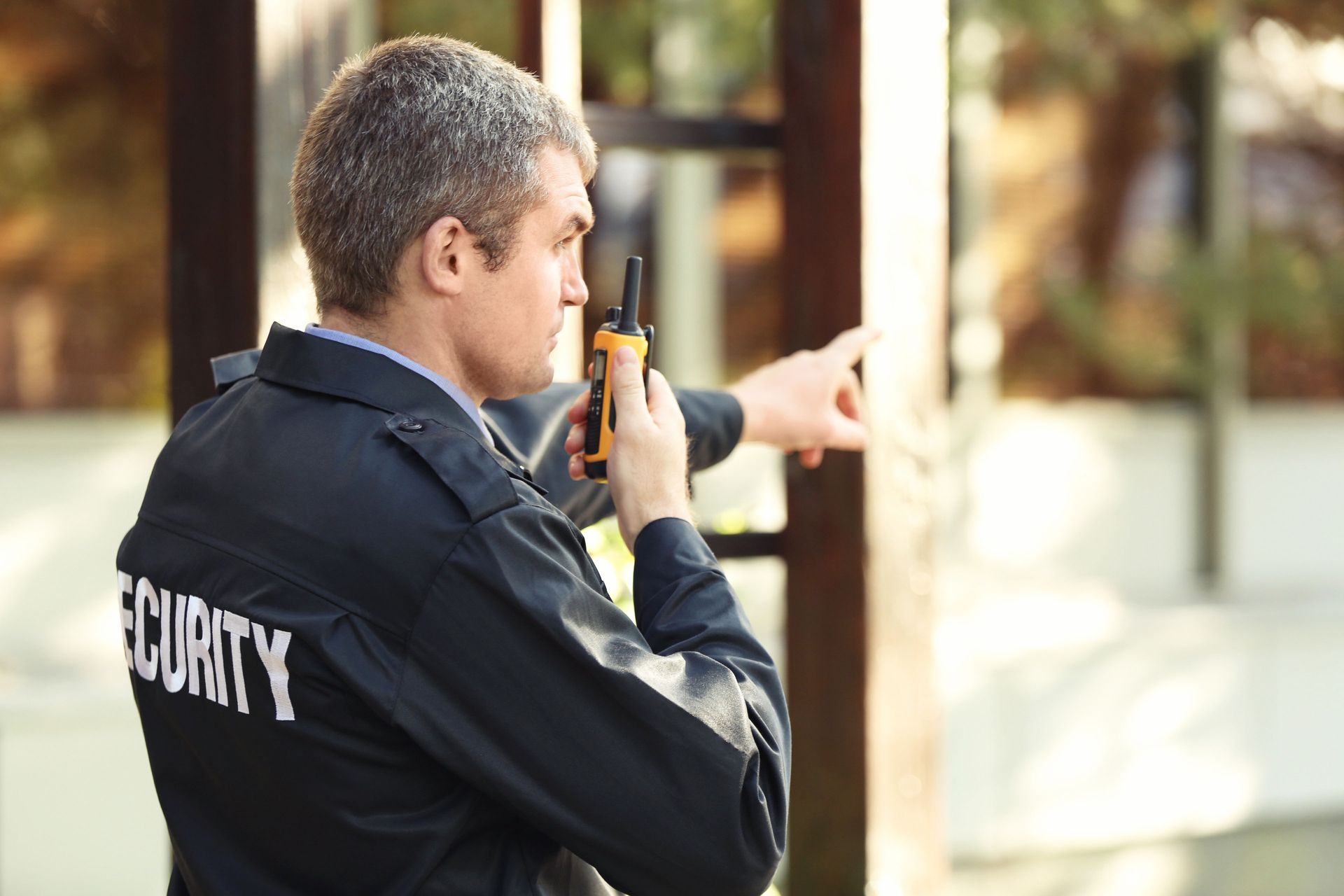Inside the Security Guard Service Industry: A Comprehensive Overview
This article provides a comprehensive overview of the security guard service industry, exploring its growth, challenges, technological advancements, and importance in various sectors. As security concerns rise globally, understanding the industry's dynamics becomes crucial for businesses and individuals alike. The security industry has become increasingly vital as threats evolve in complexity and volume, prompting a need for continuous adaptation and innovation. Security guards play a crucial role in maintaining safety, preventing crime, and responding to emergencies, making them an essential component of public and private security measures. This exploration will delve into the historical development, current trends, and prospects of the security guard industry.
1. Historical Development of the Security Guard Industry
The origins of the security guard profession can be traced back to ancient civilizations, where towns employed guards to protect property and maintain public order. In ancient Rome, for instance, the city was safeguarded by a group known as the Vigiles, a combination of firefighters and night watchmen. This concept of protecting the populace eventually evolved, with medieval knights offering security and protection to their local lords and communities. As societies grew more complex, the role of security guards expanded, meeting the need for protected trade routes and safe urban environments. This historical progression set the foundation for the modern security practices we recognize today.
Over the years, numerous laws and regulations have shaped the security guard industry. In the United States, one significant milestone was the creation of licensing requirements in the mid-20th century, ensuring guards had proper qualifications to enforce law and safety procedures. Legislative frameworks also emerged to address labor standards, professional conduct, and the use of technology in private security. These regulations have helped professionalize the industry, setting a baseline for service quality and accountability. Globally, different countries have adopted similar regulatory measures, adjusting them to meet local security challenges and socio-political contexts.
Today, the security guard industry exhibits several trends reflecting its historical development. One trend is the increasing integration of technology, with security solutions now encompassing surveillance drones, biometric systems, and AI-driven analytics. There is also a shift towards providing comprehensive security solutions that involve both physical and cybersecurity measures. According to the U.S. Bureau of Labor Statistics, the 2024 median hourly pay of security guards and gambling surveillance officers is $18.46, indicating a stable financial incentive for those pursuing a career in this growing field. Furthermore, with global security threats rising, there is an ongoing demand for skilled professionals ready to tackle complex challenges holistically.
2. Roles and Responsibilities of Security Guards
Security guards perform a variety of essential tasks designed to maintain order and safety in different environments. Their fundamental responsibilities include monitoring premises, identifying anomalies, and deterring potential criminal activities through a visible presence. Guards are also tasked with checking and verifying visitors' credentials, ensuring compliance with security protocols. In emergencies, they play a critical role in guiding individuals to safety, administering first aid, and liaising with law enforcement. The presence of a vigilant security guard provides peace of mind and fosters a safe atmosphere for business operations and daily living.
Beyond basic duties, the security industry encompasses various specialized roles demanding advanced skills and expertise. Bodyguards, for instance, offer personal protection services, often accompanying high-profile individuals to mitigate threats against their safety. Cybersecurity personnel focus on safeguarding digital infrastructure, ensuring sensitive information and networks remain protected from breaches. Security guards may also specialize in fields like retail security, event security, or transport security, each presenting unique challenges and job requirements. These specialized roles demonstrate the diversity and adaptability of the security profession in addressing specific security needs.
Comprehensive training is indispensable in equipping security guards with the skills necessary to perform their duties effectively. Guard training programs emphasize conflict resolution, emergency response, and the legal limitations of their authority. Such programs are often mandated by state regulations to ensure a standard of service and accountability.
3. Challenges in the Security Guard Industry
Recruitment and retention of qualified personnel remain significant challenges for the security guard industry. Attracting competent individuals is sometimes hindered by perceptions of the job's nature, despite its vital role in ensuring safety. Companies must offer competitive wages to attract skilled candidates. Retention efforts focus on providing career development opportunities and fostering a supportive work environment. Addressing these challenges involves enhancing the industry's image and improving working conditions to establish a stable and motivated workforce.
The security industry is heavily regulated, with standards varying by region and country. Staying abreast of these regulations is crucial for security companies, yet it presents a constant challenge as policies frequently change. Compliance entails understanding legal guidelines concerning privacy, use of force, and professional conduct, which can differ significantly across jurisdictions. Security firms must invest in regular training and compliance strategies to ensure their personnel and practices adhere to current laws. Navigating this complex regulatory landscape demands time, resources, and meticulous attention to detail to avoid legal repercussions and maintain a credible reputation.
4. Impact of Technology on Security Services
Advancements in surveillance technologies have significantly impacted security operations. CCTV cameras, once revolutionary, are now augmented by drones equipped with cameras offering real-time monitoring and aerial surveillance. These tools provide a broader view of environments, assisting in crime deterrence and incident response. Digital enhancements, including high-definition video and long-range capabilities, allow for detailed observation and evidence collection. Integrating these technologies into daily security activities improves situational awareness, enabling more informed decision-making and effective threat management.
Biometric systems, including fingerprint and facial recognition, now play a critical role in security access control. These technologies enhance traditional methods of verifying identities, offering higher accuracy and convenience. By integrating biometric systems, security firms can streamline access management processes and reduce unauthorized entry risks. The adoption of these systems underscores the industry's commitment to innovative solutions for heightened security. As technological developments continue, the reliance on biometric data is likely to increase, posing both opportunities and challenges in managing identity security.
5. Security Guard Services in Various Sectors
Security services in the corporate sector are vital for protecting assets, infrastructure, and personnel. Corporations rely on security guards to execute routine access control and surveillance, ensuring compliance with internal safety policies. Large corporations often implement wide-ranging security protocols tailored to their specific industry risks. As threats such as corporate espionage rise, security measures become increasingly sophisticated, blending traditional guard duties with advanced technology. In this sector, security guards not only prevent theft and vandalism but also play a crucial role in safeguarding intellectual property and corporate reputation.
In the retail and commercial sectors, security guards are instrumental in deterring theft and enhancing customer safety. The presence of a security guard provides a visible deterrent to potential shoplifters and aggressive behaviors. Guards are trained to manage crowd control, preventing chaos during peak shopping events and ensuring smooth store operations. They also collaborate with law enforcement to address incidents such as theft or fraud, providing valuable support in criminal investigations. This multifaceted role underscores the importance of security personnel in maintaining a safe shopping environment.
The
security guard service industry plays an integral role in maintaining safety and continually adapts to emerging challenges. Historical developments, technological advancements, and evolving threats contribute to shaping the industry's current dynamics and prospects. The profession offers both stability and growth opportunities, attracting individuals committed to safeguarding society. For a security guard service you can count on, contact Security Pro Intel, Inc today.






Share On: